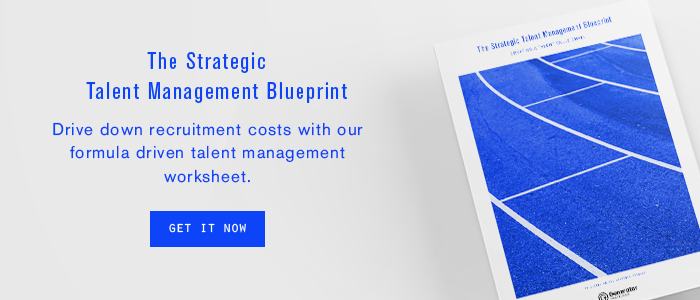17th May 2018
Deloitte 2018 Global Human Capital Trends – explained in exactly 1,000 words
The Rise of the Social Enterprise
The Deloitte Human Capital report starts with explaining how organisations are now expected to be ‘social enterprises’; that is, they need to gain a social license to operate, and need to consider all stakeholders in what they do. Transparency, equity and technology are driving this. The rise of millennials as a force, and the withering of trust in institutions like the church and government shine a light on organisations and the role society expects them to play.
Think about the big social themes at play right now: diversity and inclusion, female pay equity and #MeToo and how they are shaping policy and actions. Then consider Cambridge Analytica and Facebook, and the sight of Zuckerberg in front of the US Congress trying to explain how the internet and privacy works. None of these are central to providing a good or a service, yet they are absolutely shaping the way organisations are acting today. Organisations have to listen to the social voices external to them.
10 Human Capital Trends for 2018
- The Symphonic C-suite: The team at the top needs to shape the actions of the teams beneath it. Now, I’m not sure why Deloitte think this is a trend, as this has been an undeniable organisational truism for a long time now. We’ve been helping executive teams get aligned and be better at teamwork for years. I think their point is this; it’s now more important than ever that the top team is a great team, and collectively they shape the response to the rest of the trends.
- The Workforce Eco-system: Huh? It just means that an organisations workforce is not just its direct employees, but contractors, freelancers, gig workers, service providers and the like. Again, nothing new here. What is new is that the proportion of these workers is rising and will continue to do so. Getting them culturally aligned, across your purpose, mission and values is becoming more critical.
- New types of Personal Rewards: The rise of the individual is at play here. Just as there’s a myriad of reasons why people join and stay at an organisation, an effective reward strategy must cater for a range of tastes. What used to work may not any more, and what matters to one (eg: pay and financial reward) may not ring the bells of someone who wants flexibility, variable work hours or more time working from home.
- From Careers to Experiences: Career paths that made sense 10 or more years ago are out the window. Instead, individuals are seeking a series of experiences that provide variety, stretch, new skills or even reinvention. As the 21st century employee, the decisions about what’s right for me are becoming mine to make, not my organisations. I’m wanting to be empowered to figure it out, to experiment and to keep myself relevant to technology.
- Work in 100-year Lifetimes: Yep, we’re all living longer and are going to have to work longer as well. The older worker is both a problem and an opportunity. Demographic changes will likely force companies to address this looming societal issue, but in doing so they can tap into a proven, committed, and diverse set of workers. However, to do this is going to take some new approaches and policies on how work is defined.
- The Social Compact: I’ve rephrased this trend, and it was highlighted in the preamble on ‘The Social Enterprise’. Being a good corporate citizen and engaging with all stakeholders is becoming more important, and more challenging as it encompasses embracing the diversity of the players involved. Get too focused and extreme, and you risk alienating some. The role corporations played in last year’s Marriage Equality debate is an example of what’s in store. Even sitting on the sidelines can alienate.
- Wellbeing: As the lines between work and life get fuzzier, employees expect their organisations to care for them holistically, across mental health, physical wellbeing and spiritual enrichment. Organisations are seeing wellbeing programs as both a responsibility and an edge in their pursuit of the best talent. Office décor is looking more like home décor, and a stand-up desk is becoming de rigour. But it will take more than a ping pong table to make it real.
- AI, Robotics and Automation: In the weeks since the Deloitte report was published, it seems this subject is growing in consciousness. Its hard to read the business press or social feeds without coming across AI and the future of work, and the impact on humans of the rapid technological advances in the field. The challenge for organisations is putting humans ‘in the loop’, to take the opportunity to redesign work, retrain people and restructure the organisation, and in doing so perhaps even redefine nature of work to benefit all of society. This isn’t going away!
- The Hyper-connected Workplace: New communications tools are rapidly entering the workplace, and collaboration platforms and “work-based social media,” are expected to become more common. As these tools migrate from personal life to the workplace, the challenge is to ensure that they improve performance, productivity and work-satisfaction, and not remain a gimmick or a shiny new thing. They must be leveraged to build more collaborative enterprise, both internally and externally; that’s the holy grail here.
- People Data – too much? The massive increases in data and the rise of powerful analytic tools are oping up new possibilities in the world of HR. Can we create an algorithm to find the perfect employee? How does an organisation manage the data privacy challenges here, and not just within its employee ranks but within the larger social eco-system outlined above? Is data security becoming the biggest growth vocation? Lots of questions.
Words 956 to 1,000
So, Deloitte have delivered again, with their 2018 Human Global Trends Report. As they say, it’s a wake-up call. None of us are insulated from the effects, and the rise of the social enterprise is upon us. Act now!
Categories: Uncategorised




